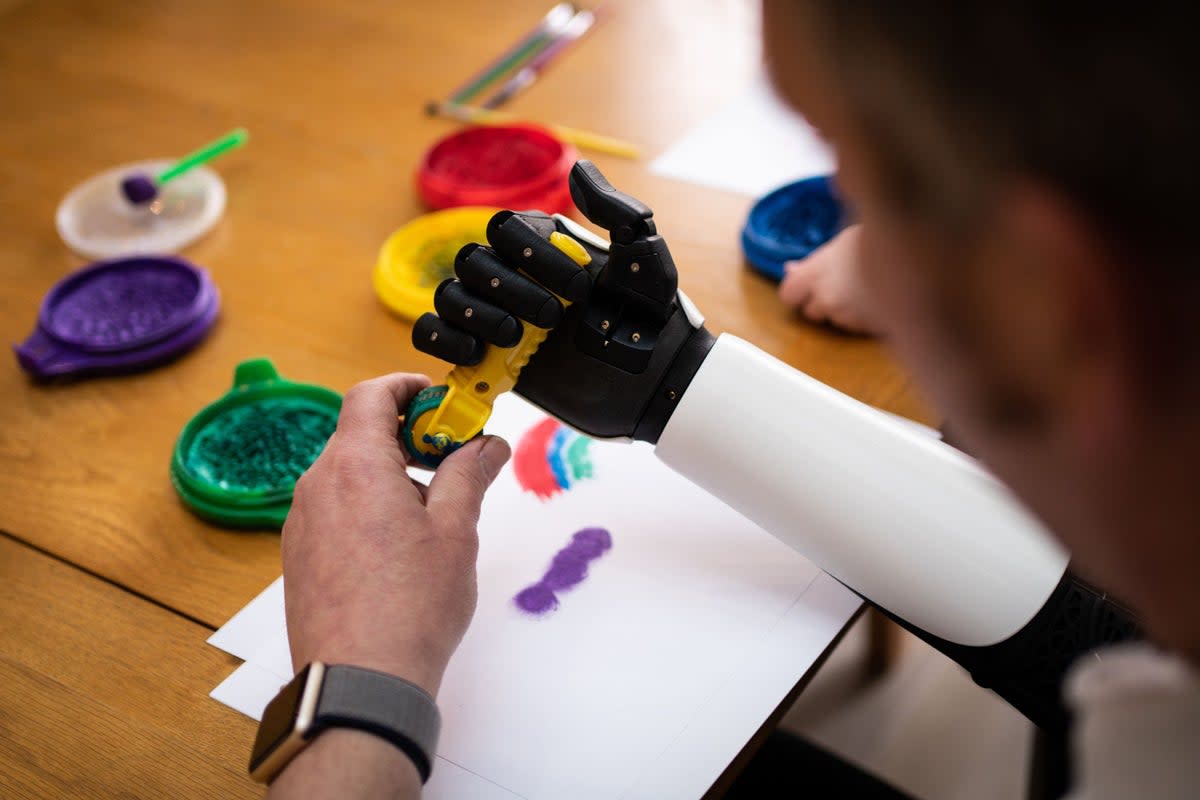NHS offers ‘life-changing’ bionic arms to all amputees

Bionic arms which can mimic real hand movements will be made available to all amputees, the NHS has said.
They are controlled by electrical brain signals with multi-grip capabilities, enabling a greater range of movements to make day-to-day tasks easier.
The NHS will make the life-changing technology available to every patient across England who needs it.
The prosthetics had previously only been available on the NHS to military veterans injured in service.
The health service’s chief executive, Amanda Pritchard, said: “These incredible multi-grip prosthetics have already made a huge difference to veterans and so it is fantastic to be able to offer them to all patients in England who need them.
“The arms, for both children and adults, use the very latest tech which will boost peoples’ independence and change the lives of dozens across the country.
“The NHS is at the forefront of medical innovation and this rollout is the latest example of how we are adopting the best medical advances for patients.”
Those offered by the NHS previously were basic models, with limited open and close gripping motions.
Eligible patients must have enough residual upper arm muscles to send signals that create intuitive movements.
Children as young as nine can use them.
People will be carefully assessed to find the right type of prosthetic for them depending on their requirements and capabilities.
Health Minister Will Quince said the bionic arms give children and adults more independence, such as holding a glass of water or paint brush, which they weren’t able to do before.
“The NHS making this ground-breaking technology widely available is testament to our country’s innovation, focused on helping patients get the right care, right now.”
Darren Fuller, 46, from Colchester, Essex, lost his right hand and forearm in 2008 serving in Afghanistan.
He said: “It will massively change people’s lives because they will be able to do things more independently – they have amazing functionality.
“I can hold a paint brush and paint or pick up a glass and drink from it.
“I have a seven-year-old daughter and it allows me to do a lot more with her such as arts and crafts. I don’t feel excluded from any part of her life anymore and there’s not much I can’t do with her.
“It will be like Christmas for those people who are eligible for this, have wanted one and been waiting for this day.”

 Yahoo News
Yahoo News 
